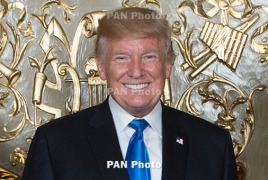
U.S. President Donald Trump said Monday, August 4 the country may have a coronavirus vaccine available to the public ahead of the administration’s goal of the end of the year or early 2021, CNBC reports.
“We’re balancing speed and safety and we’re on pace to have a vaccine available this year, maybe far in advance of the end of the year,” Trump said during a White House press briefing. “And we’re mass-producing the most promising candidates in advance so that we’re ready upon approval. We have our military lined up, it’s logistics, it’s all about logistics.”
He mentioned vaccine candidates from drug companies Pfizer and Moderna, which both began late-stage trials for their leading vaccine candidates last week, and have already vaccinated “several hundred people,” according to senior administration officials. Both potential vaccines use mRNA molecules, which scientists hope will provoke an immune response to fight the virus.
“These are companies that are not only well know, they are well respected,” Trump said.
Because of the pandemic, U.S. health officials and researchers have been accelerating the development of vaccine candidates by investing in multiple stages of research even though doing so could be for naught if the vaccine ends up not being effective or safe.
Trump’s prediction of when the U.S. may have a vaccine may be optimistic. Though scientists expect to have an effective vaccine widely available by next year, there is never a guarantee. While drugmakers are racing to make millions of doses of vaccines, there’s a chance the vaccine will require two doses rather than one, potentially further limiting the number of people who can get vaccinated once it becomes available, experts say.
Officials also need to make sure states have the vials, needles and syringes needed to administer the vaccine or risk shortages.
Additionally, scientists say that questions remain about how the human body responds once it’s been infected with the virus. The answers, they say, may have important implications for vaccine development, including how quickly it can be deployed to the public.

